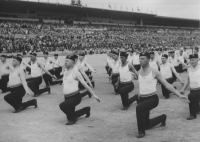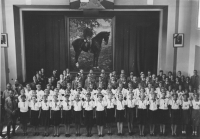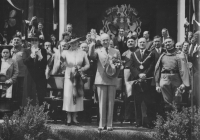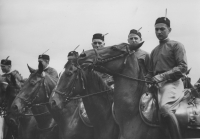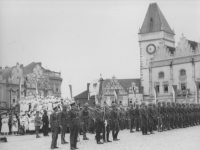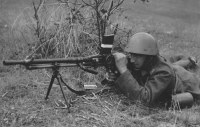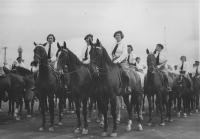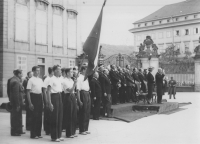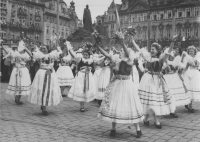Mom wanted us to see it with our very own eyes
Lidmila Černá, née Skuhrová, was born on 22 February 1936 in Prague. Her father, František Skuhra, served in the bodyguard service of Presidents Masaryk, Beneš, and Hácha. During the Second World War, according to her own words, the witness started school at the Russian lyceum in Pankrác, Prague. At the end of the war, at the age of nine, she witnessed the bombing of Prague, the liberation of Hlubočepy by Vlasov‘s army, and the atrocities committed against the German population. In Nová Bystřice, where she has been visiting part of her family all her life, her father František Skurka smuggled people who were inconvenient to the communist regime across the border after the February takeover. Near the southern border, she also experienced the constraints typical of a border zone. She studied at a secondary school focused on graphics, graduating in 1954. She worked at the Svoboda printing house. In 1968, she became a member of the Club of Committed Non-Party Members (KAN); in 1988 she took part in a permitted demonstration on Škroup Square in Prague and in November 1989 in the November demonstrations. In 2020, at the time of the interview, she was retired and living alternately in Prague and Nová Bystřice.
